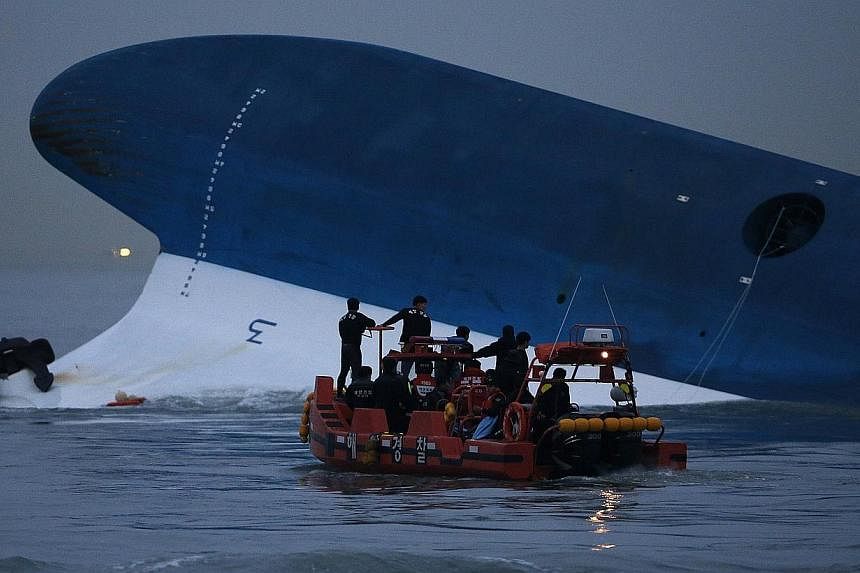SEOUL (AFP) - The head of the operator of the South Korean ferry that sank in April with the loss of nearly 300 lives went on trial on Friday on charges of criminal negligence.
Kim Han Sik, the chief executive of Chonghaejin Marine Co., which owned the 6,825-tonne Sewol ferry, appeared in court in the southern city of Gwangju with four other company officials.
All five face charges relating to allegations that the ferry, which capsized and sank on April 16, was regularly and dangerously overloaded with cargo in an effort to maximise route profits.
Yonhap news agency quoted Kim's lawyer as saying his client, as chief executive, felt "deeply responsible" but challenged the idea that he was personally to blame for the tragedy and the huge loss of life. And a lawyer for another Chonghaejin official said he would dispute the prosecution's claim that overloading was a direct cause of the disaster.
A massive manhunt is underway across South Korea for Yoo Byung Eun, the 72-year-old patriarch of the family that owns Chonghaejin Marine Co. through a complex web of holding companies. He faces allegations of tax evasion, embezzlement and professional negligence.
Yoo and his eldest son - who both have substantial rewards on their heads - have evaded capture for weeks despite a nationwide dragnet involving thousands of police as well as military personnel.
Friday's trial opened as it emerged that the principal of the South Korean high school that lost more than 240 students in the disaster has been suspended. Choo Kyo Young "was removed from his post in connection with the ferry disaster", a local education official told AFP. He declined to elaborate on the precise reasons behind the disciplinary action, which involves a three-month suspension after which the individual is either reinstated or reassigned.
Dawon High School in Ansan city, south of Seoul, has become a poignant symbol of the human cost of South Korea's most traumatic peacetime disaster. Of the 476 people on board the vessel, 325 were Dawon students on a school trip to the southern resort island of Sewol. More than 240 were killed, along with 10 teachers.
The school's vice-principal, who was rescued from the ferry, committed suicide three days later, consumed by guilt that so many students in his charge had died.

